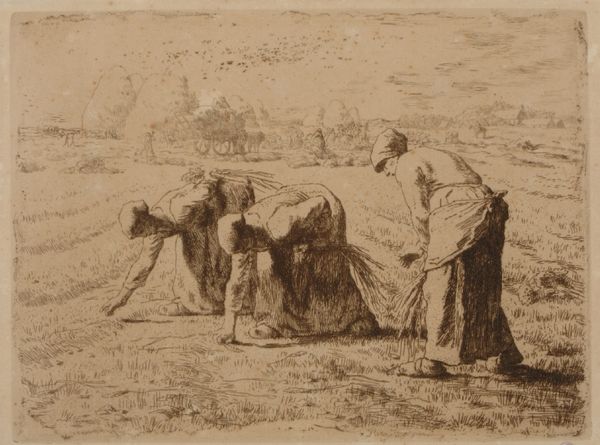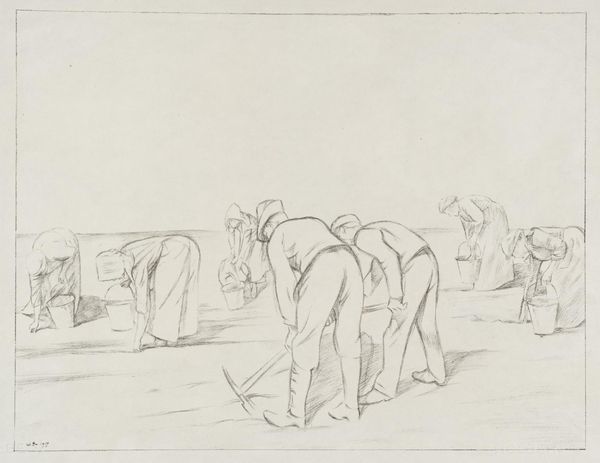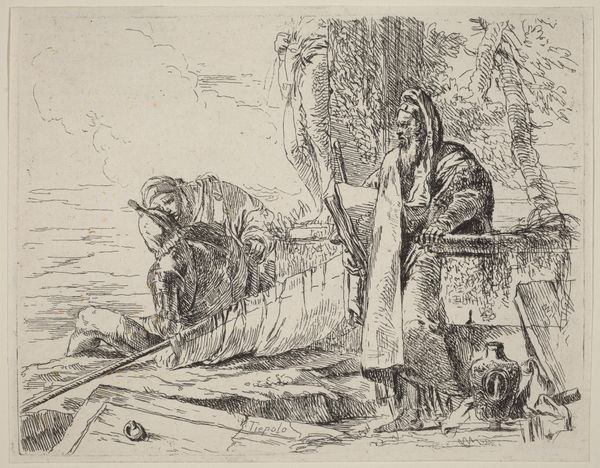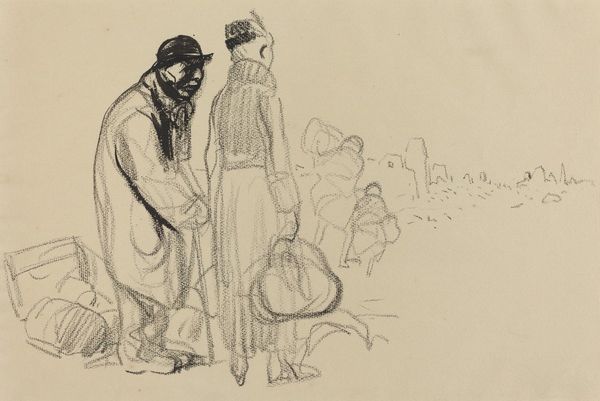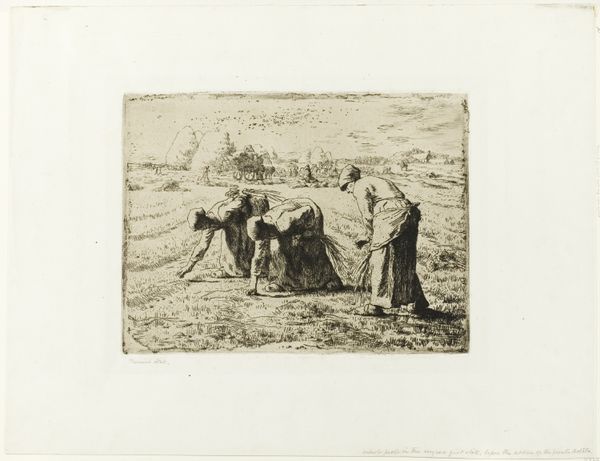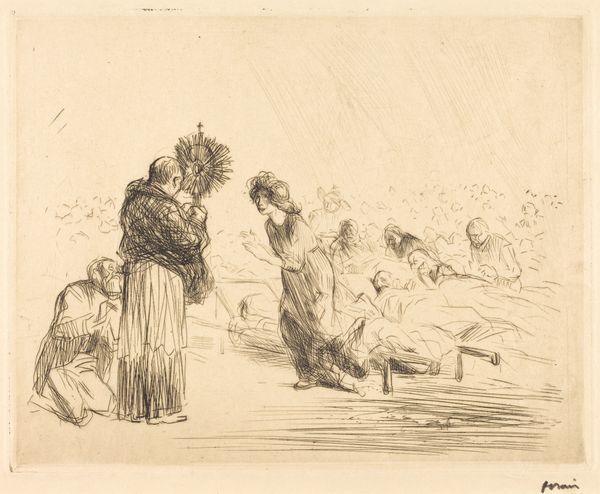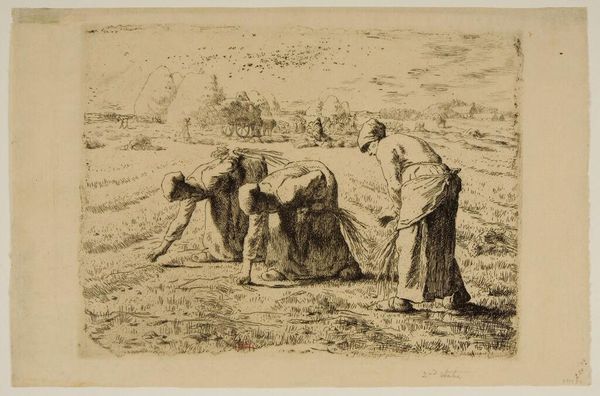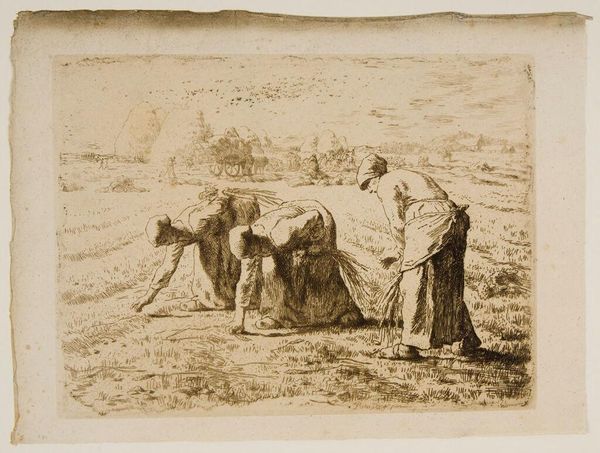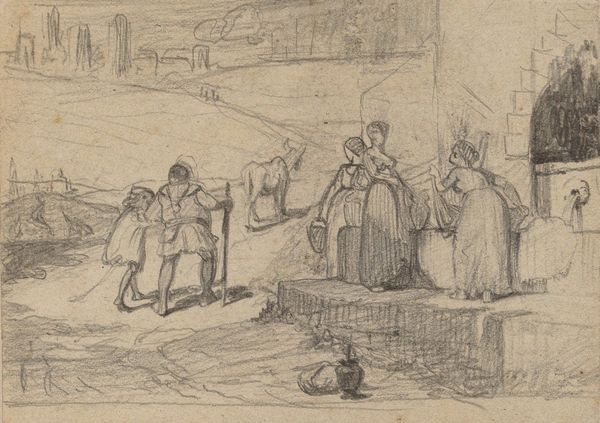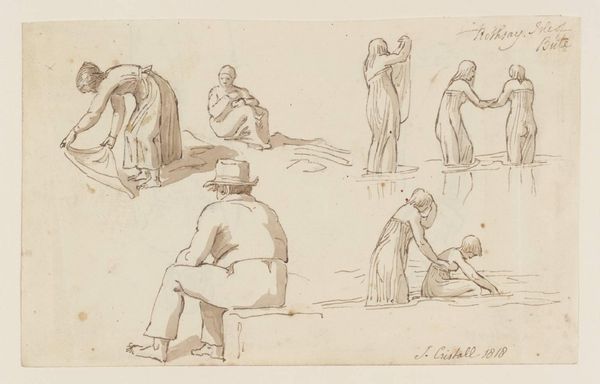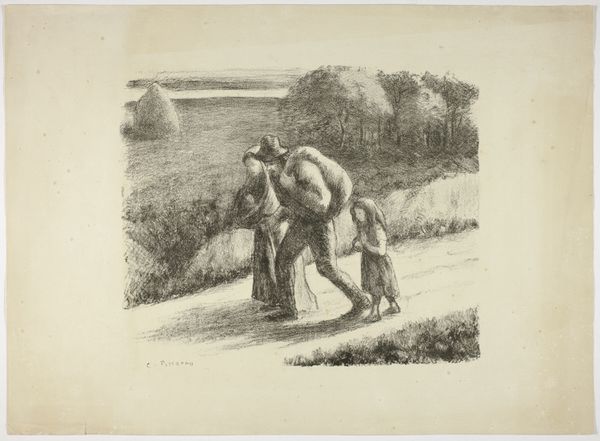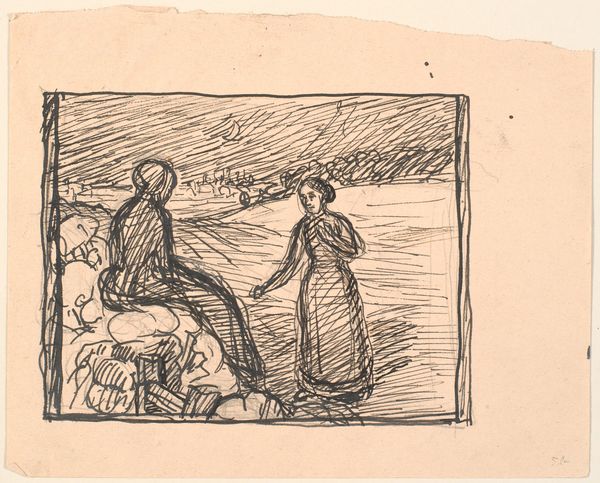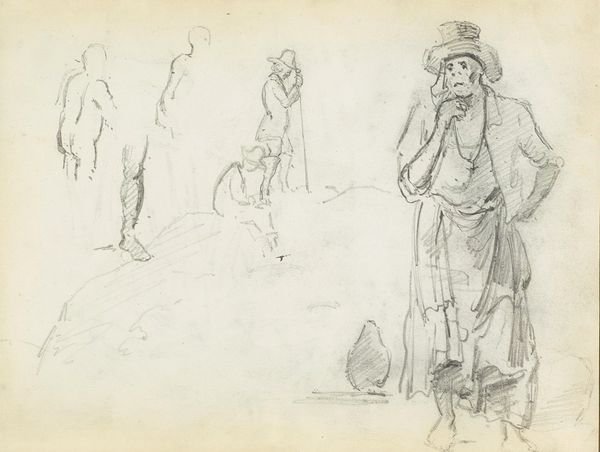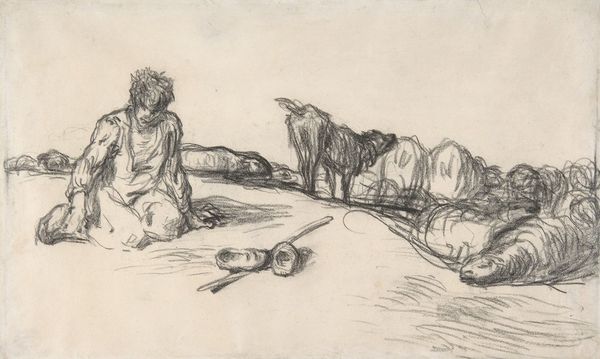
drawing, pencil
#
drawing
#
landscape
#
pencil
#
genre-painting
#
academic-art
#
realism
Copyright: Public Domain: Artvee
Curator: Before us is Jean-François Millet’s pencil drawing, “Étude pour les glaneuses.” The scene captures figures working in a field. What are your initial impressions? Editor: It hits you with a stark sort of realism. Not polished, not romanticized. You feel the weight of labor; the women are bent, strained... digging at existence. It has an unvarnished truth, maybe a kind of humble dignity. Curator: Yes, the composition directs our eye low to the ground, emphasizing their task. The formal arrangement presents an interesting visual argument of hierarchy between those harvesting, and the scale of what remains after harvesting. Notice the line quality. What semiotic observations might you venture about this stylistic choice? Editor: Well, the figures are drawn with strong, decisive strokes giving form to physical presence. Meanwhile the landscape kind of dissolves, becoming all suggestion and air. Like the only reality is the aching back and dirty hands, maybe the sun pressing on skin, you know? It makes you wonder, what stories lie beneath those shawls and skirts? What do they dream of at night after such a grueling day? Curator: The loose, gestural lines effectively portray movement and atmosphere. You see the figures aren’t rigidly defined, imbuing this scene with fluidity and a very transient aspect of human activity embedded in the natural cycle. Editor: The details sort of…emerge rather than declare themselves. Reminds me of a half-remembered dream. There's a beauty in that rawness that escapes something more sculpted, almost like what's captured isn't the activity of working the field, but a distillation of the work. And maybe those are the same things. Curator: Precisely. It encourages a contemplative engagement; less spectacle, more soul. A rendering, not just of labor, but of laborers and the essence of existence they share within it. Editor: A lot of humility and poetry. Hard work transfigured by seeing. Maybe beauty doesn’t demand grand landscapes or noble figures. Curator: Maybe its most profound form is revealed in the simplest, most essential aspects of life. Thank you.
Comments
No comments
Be the first to comment and join the conversation on the ultimate creative platform.
